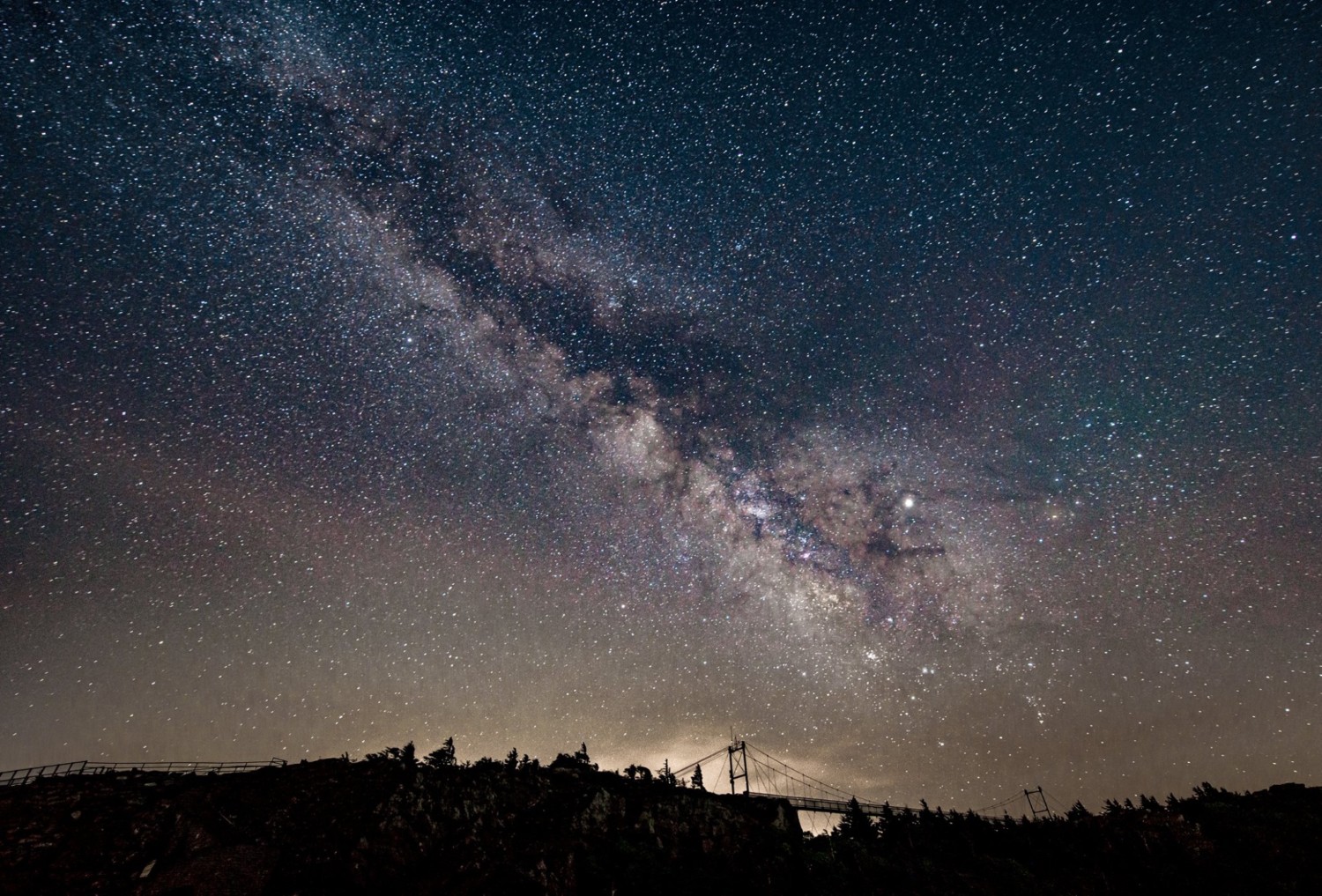
October is one of the best times of year to be stargazing at Grandfather Mountain. The air is cool and clear, and the summer constellations are still very prominent, with some early winter sights making their appearance later in the evening. This course is also during the time of the Orionid meteor shower, so hopefully some of these celestial fireworks will grace our skies during the nighttime observation.
The goal for this course is to create a familiarity with the night sky and learn the basics of stargazing that can be applied on your own on any clear night throughout the year. We’ll start in the classroom by exploring some of the best print and digital resources for observing the night sky and cover some of the basics of stargazing and how to orient to the night sky. We’ll also discuss the use of planispheres, star maps and star charts to find some of the most beautiful deep sky wonders that can be seen through binoculars or small telescopes. During the evening hours, we’ll be out at various viewing locations on the mountain, practicing our stargazing skills while looking for meteors and learning about some of the most prominent stars, constellations and other objects visible this time of year.
Course instructor Stephan Martin has been a stargazer since he was very young growing up under dark skies of South Florida. Martin is also an astronomer, educator and author, who has taught astronomy and physics at colleges, universities and learning centers across the U.S. and internationally for more than 25 years. He has worked as a data analyst for the Hubble Space Telescope and as Observatory Supervisor at Williams College, where he participated in scientific research expeditions around the world to study the dynamics of the solar corona during solar eclipses.
